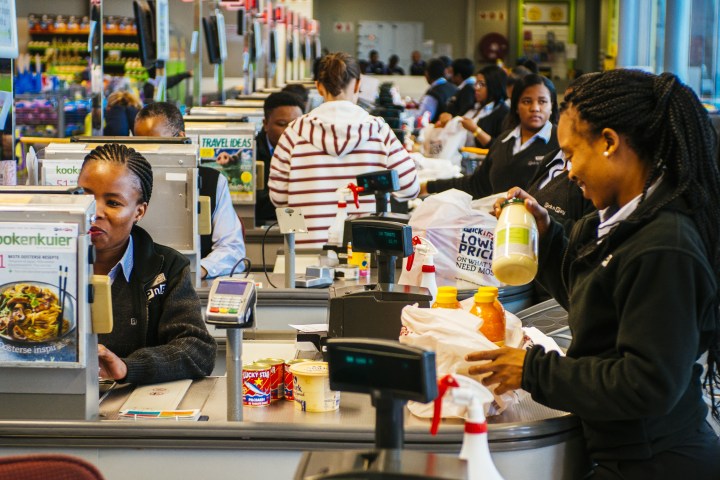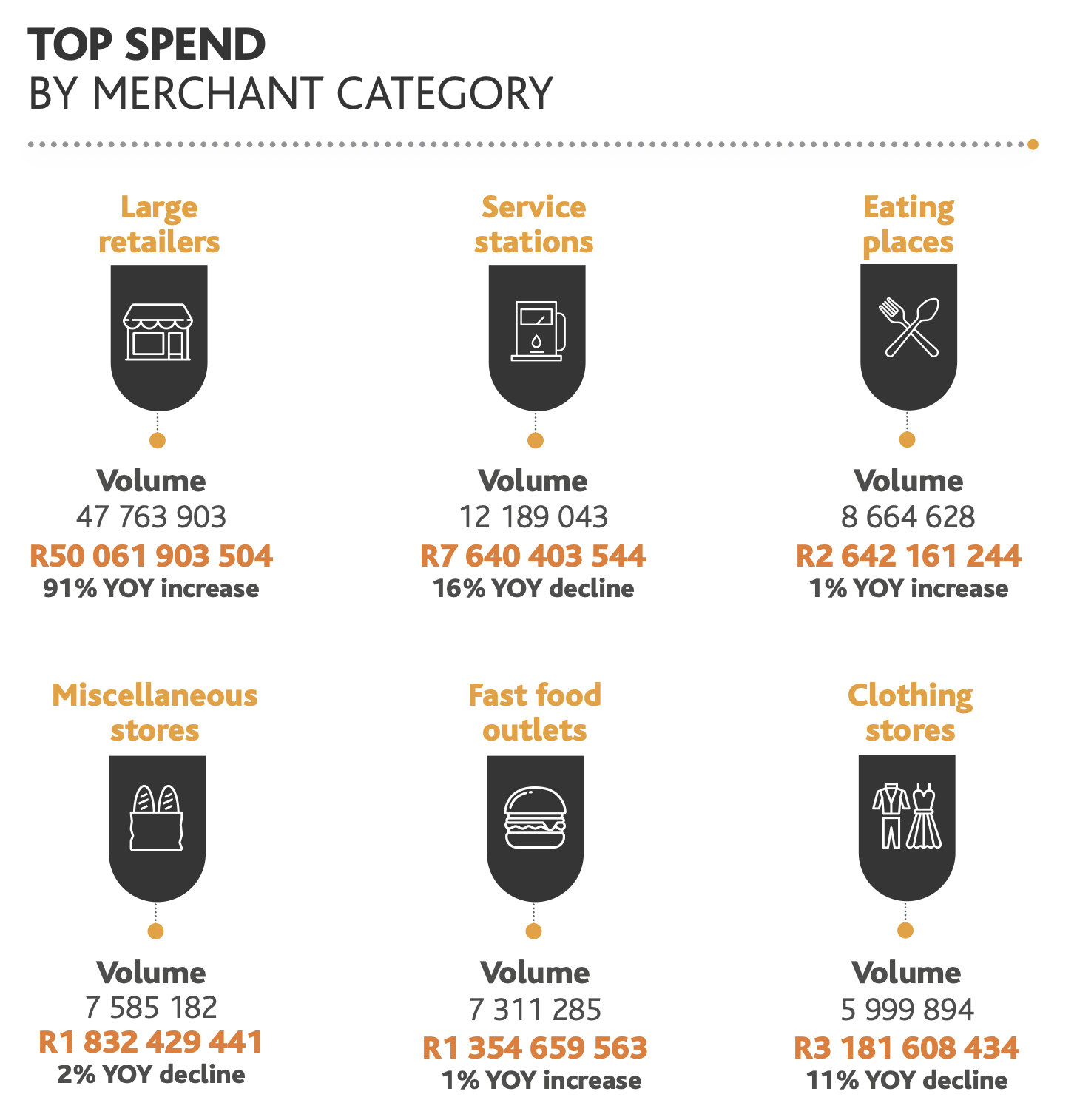CONSUMER SPENDING PATTERNS
Santa forgot to bring Christmas 2023 sales cheer to some SA retailers

December 2023 was a festive season in which cash-strapped consumers prioritised the purchase of essentials over clothing. Food retailers performed well, but those selling non-essential items are in the doldrums.
Two early trends are emerging about consumer shopping patterns and how sales fared during the crucial Christmas shopping period of 2023 in South Africa. The tills rang and Santa came — but not for all retailers.
The first trend is that the festive season has likely provided a boost for retail sales in the economy, as it ordinarily does after sales choked for most of 2023 as consumers battled high interest rates, stubborn inflation and joblessness.
The second is that while consumers shopped over the Christmas period, they prioritised the purchase of essential items such as food (even seeking out discounted goods), rather than clothing and even Christmas presents.
This can be seen in retail sales numbers released by retailers including Woolworths, Clicks, TFG (the owner of Foschini, Markham, Jet and other brands) and consumer goods company AVI.
No definitive conclusion can yet be drawn from the numbers about whether the festive season was a success or a flop, as other big retailers are yet to disclose their sales performances. However, the numbers give an early indication of what to expect.
A conclusion can be drawn on 14 February when Statistics South Africa publishes official retail trade sales figures for December.
Early data from retailers and observers of the economy point to December being a good month for the retail industry, also indicating that consumers are still under immense financial pressure.
BankservAfrica is Africa’s largest automated payments clearing house, which also tracks spending by consumers and the transactions they carry out using bank cards.
Data from BankservAfrica shows that the total in-store card spend for December 2023 amounted to R112.5-billion, representing a 13% growth from the R100-billion recorded in December 2022.
Solly Bellingan, the head of marketing at BankservAfrica, said grocery stores and supermarkets were busy during the festive season, recording the largest spend. Food and other essential household items were largely the priority for consumers.
The spending at grocery stores and supermarkets almost doubled in value at R50-billion, with 47 million card transactions (compared with R26-billion in December 2022), according to BankservAfrica. The average spend per purchase by consumers at groceries and supermarkets increased from R580 to R1,048 during December.
BankservAfrica found that purchases of fuel declined by 16% (R7.6-billion in December 2023 compared with R9-billion in December 2022) and clothing fell by 11% (R2.8-billion in December 2023 compared with R3.1-billion in December 2022).
Spending was slightly higher at restaurants and fast food outlets.
Food purchases becoming a priority
The increase in spending by consumers at supermarkets and the decline in their spending on clothing is consistent with the trading updates recently published by South Africa’s largest retailers.
For example, the Woolworths food business, which is usually the star performer for the retailer, saw total sales increase by 8.4% during the 26 weeks ending 24 December 2023, while same-store sales (excluding those generated by newly opened stores) grew by 7.2%.
Woolworths saw sales of food grow strongly by 8.6% in the run-up to Christmas.
Consumer goods group AVI, which manufactures brands such as Five Roses and Freshpak teas, Romany Creams and Bakers biscuits, I&J fish and others, also saw a growth in its food sales.
During the six months ending 31 December 2023, AVI saw its food, beverage and snacks businesses each growing sales by more than 8%, with the beverage business growing the most by 16%.
Clicks also had a good December, pencilling in record daily sales on Friday 22 December. The group saw its overall sales, including those generated by its medicine distributor, grow by 8% during the 20 weeks ending 14 January 2024.
Clicks said struggling consumers focused on essential items while bargain hunting for items such as chocolates, biscuits and cleaning products.
Clothing sales flop
The clothing category seems to have not held up well, as seen in the performance of the fashion businesses of Woolworths, AVI and TFG.
At Woolworths, its fashion, beauty and homeware businesses grew at a slower rate of 2.2%. This business was impacted by consumers shifting purchases towards food and the poor availability of merchandise, as some summer ranges of clothing came late in South Africa owing to the congestion and dysfunction of ports operated by Transnet.
AVI, which also owns the Spitz, Kurt Geiger, Lacoste, Green Cross and Gant brands, saw lower clothing and shoe sales (growth of 0.5%) during the December period, pointing to consumers not having disposable income to purchase upmarket clothing.
TFG has reported slower sales growth for clothing, saying that “consumers remain under pressure, with higher inflation and interest rates adversely impacting sales”.
Sales at TFG, for the quarter ended 30 December, rose 4.5% from the same quarter in 2022 when sales jumped 17.3%.
Cassie Treurnicht, an analyst at Gryphon, is not surprised by consumers prioritising essentials, saying this signals “a muted consumer that is continuing to spend very cautiously”.
“WHL [Woolworths] and TFG are proof that clothing is not hanging onto volumes … taking inflation into account, they are selling fewer units,” Treurnicht told Daily Maverick.
There is a glimmer of hope, however.
Since the days of Covid lockdowns, there are signs that the consumer financial situation is somewhat improving. Treurnicht said wallets have adjusted to high inflation through wage increases and, to some degree, jobs that have been recovered since lockdowns were lifted.
“However, this does not mean that spending patterns will improve — you’ll probably find that people tighten their belts and rebuild savings after a horrible previous two years.
“Also, it does not mean that retailers will eventually be posting better profits. Ports have caused headaches and will be having cost impacts in one way or another,” he said. DM


















 Become an Insider
Become an Insider
Comments - Please login in order to comment.